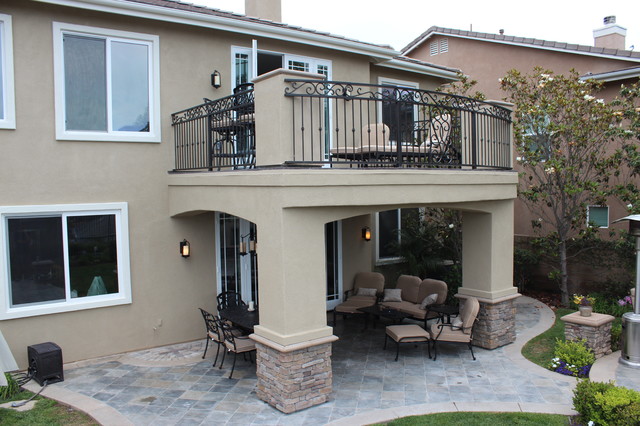Orange County Balcony Inspections

Table of Contents
Balconies are cherished spaces in residential buildings, providing a blend of indoor comfort with outdoor enjoyment. However, with the picturesque views come responsibilities—balcony safety and legal compliance. In California, particularly in Orange County, ensuring your property adheres to balcony inspection laws like SB 326 and SB 721 is critical for property owners and managers. Here’s a closer look at why balcony inspections matter, the legal landscape surrounding them, and how to stay compliant with state regulations.
What Are the Key Balcony Inspection Laws in California?
California’s two major legislative acts governing balcony inspections are SB 326 inspection and SB 721 inspection. Both laws were enacted to improve the safety of exterior elevated elements, such as balconies and decks, after a series of tragic balcony collapses that highlighted the need for stricter maintenance oversight.
- SB 326 applies specifically to condominiums and community apartment projects and requires inspections of balconies, decks, and other elevated structures every nine years by a licensed professional.
- SB 721, on the other hand, governs multi-family residential properties with three or more units and requires inspection every six years.
Both laws mandate that the inspection reports be filed with local building departments, ensuring that any deteriorating structures are addressed promptly, protecting tenants and visitors from harm.
Why Are Balcony Inspections Crucial in Orange County?
Orange County’s unique Mediterranean climate, with its proximity to the Pacific Ocean, offers plenty of sunshine but also subjects exterior structures to various stressors like salt air, moisture, and temperature fluctuations. These conditions can accelerate the degradation of materials, particularly in wooden balconies and decks, which are often vulnerable to rot, corrosion, and water damage over time. Regular inspections ensure that balconies remain safe and structurally sound for years to come.
Failing to conduct regular balcony inspections can result in not just hefty fines but potential legal liabilities if accidents occur. Moreover, in a competitive real estate market like Orange County, having a well-maintained property—one that meets all safety and compliance standards—can enhance property value and tenant satisfaction.
Contact DrBalcony for a professional inspection!
Ensure the safety of your balcony and living space with DrBalcony - We're a Tech Engineering firm that specializes in California SB326 & SB721 balcony inspections. Over 300+ completed projects in California.
Request A Free EstimateClick To CallHow Does the SB 326 Inspection Process Work?
In Orange County, inspections conducted under SB 326 follow a systematic approach. Here’s what to expect:
Initial Visual Assessment: A licensed inspector performs a visual inspection of the property’s balconies, decks, and exterior elevated elements. They look for signs of decay, cracks, water damage, or any other structural issues.
In-Depth Examination: If the visual inspection reveals concerning signs, the inspector may use specialized equipment, like moisture meters or infrared cameras, to assess the integrity of the structure.
Inspection Report: The inspector compiles a detailed report, identifying any problems and suggesting the necessary repairs or replacements. Property owners are typically given a timeline for completing repairs and must submit the inspection report to the local building department.
Repairs & Follow-up: If repairs are needed, property owners must address them immediately to stay compliant with the law. In some cases, a follow-up inspection may be necessary to ensure that the repairs meet safety standards.
What Are the Costs Involved in a Balcony Inspection?
The cost of a balcony inspection in Orange County can vary based on several factors, such as the size of the property, the number of balconies, and the extent of the inspection required. Typically, property owners should budget between $500 and $1,000 per inspection. While this may seem like an upfront expense, it pales in comparison to the potential costs of liability claims, fines, or worse—an incident involving a failed balcony.
By being proactive, property owners can protect their investments, ensure the well-being of their tenants, and avoid the costly repairs that come with deferred maintenance.
How Can Property Owners Stay Compliant with Balcony Regulations?
To stay compliant with California balcony laws, Orange County property owners should develop a routine inspection schedule in collaboration with licensed professionals. Additionally, maintaining a log of maintenance activities and prior inspection reports is crucial to demonstrating compliance if ever needed.
- SB 721 and SB 326 provide clear timelines for when inspections must occur, so marking these on a property maintenance calendar is essential.
- For owners of older buildings, it may be worth scheduling more frequent inspections, particularly if the structure has a history of water damage or other issues.
Partnering with a knowledgeable, experienced balcony inspection service can simplify the entire process, ensuring that your property meets all local and state requirements.
What Are the Risks of Non-Compliance?
Failing to comply with SB 326 and SB 721 could lead to serious consequences. Local building authorities can impose fines, and property owners may face legal liabilities in the event of a balcony collapse or other structural failure. Moreover, regular inspections help prevent more costly repairs down the line, as minor issues can escalate into major structural failures if left unaddressed.
In an ever-changing real estate market, tenants and buyers increasingly look for properties that prioritize safety and adhere to regulations. By complying with California’s balcony inspection laws, property owners in Orange County can mitigate risk, maintain property value, and foster a reputation for responsible management.
Conclusion: Safety First, Compliance Always
In summary, balcony inspections in Orange County are not just about following the law—they’re about ensuring the safety and longevity of your property’s most valuable outdoor spaces. SB 326 and SB 721 set clear guidelines that protect both property owners and occupants from potential hazards related to exterior elevated elements. Staying informed and proactive about inspections is key to preserving the integrity of your building and preventing costly repairs or legal battles.
Whether you own a multi-family residence or manage a condominium, complying with balcony regulations will safeguard your investment and the safety of those who rely on these structures. Reach out to licensed professionals who specialize in balcony inspections in California to stay ahead of the curve and maintain your property with confidence.
Contact DrBalcony for a professional inspection!
Ensure the safety of your balcony and living space with DrBalcony - We're a Tech Engineering firm that specializes in California SB326 & SB721 balcony inspections. Over 300+ completed projects in California.
Request A Free EstimateClick To CallFAQ Section: Top Questions & Answers
My property is well-maintained. Do I really need SB-326/SB-721 inspections?
YES! Even with excellent maintenance, hidden issues can develop due to construction errors, material flaws, or severe weather exposure. Inspections are about ensuring those don’t turn into major problems.
Our balconies were inspected a few years ago – isn't that enough?
Unfortunately, no. California laws mandate inspections on a set schedule, often every 6 years. Deterioration can happen quickly, making regular assessments essential.
Can I use my regular handyman for the balcony inspection?
It’s not recommended. Unless they hold specific licenses (architect, structural engineer, etc.) their inspection won’t be considered valid for SB-326/SB-721 compliance.
What if the inspection uncovers major issues?
First, don’t panic! Early detection often means less extensive (and expensive) repairs are needed. Work with your inspector to prioritize fixes, and explore if they offer repair services for a streamlined solution.
I'm worried about the cost of inspections. Are there any resources to help?
Start by getting detailed quotes from multiple companies. Factor in that proactive inspections help you avoid even bigger costs down the line due to neglected problems. Some property management associations offer guidance on budgeting for balcony compliance.
